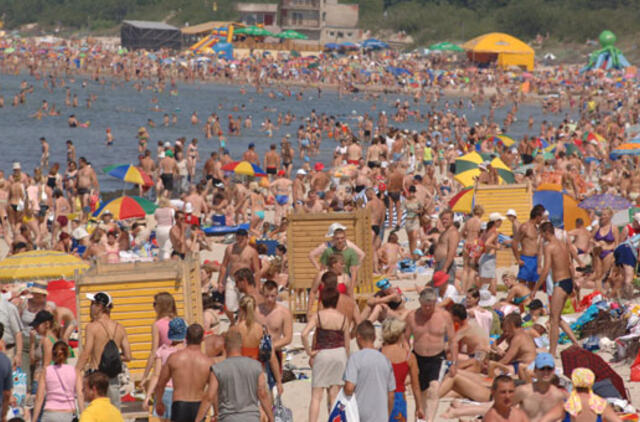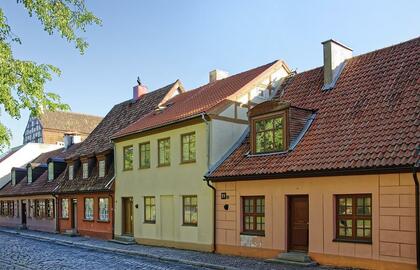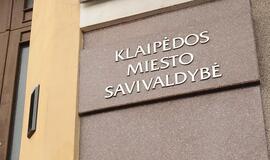Among the most hotly debated issues today is the issue of climate change. Regardless of cause, the fact is that it is happening and will likely continue into the foreseeable future. The effects of climate change have already been seen in several locations across the globe. The Thames Flood Barrier is among the most notable examples. Built to safeguard the City of London in the event of a Thames flood, the Barrier serves as a constant reminder of the fragility and unpredictability of nature as it collides with man. Though climate change has not overly impacted the barrier, it has launched new appeals in Great Britain to consider implementing further measures.
Yet some countries have prospered because of the changes. In Greenland, the receding ice has given the locals more space on which to build. Similar effects may start to make an impact elsewhere. Northern European countries, such as the Baltic countries of, Lithuania, Latvia, and Estonia, along with Great Britain have enjoyed milder summers and winters as a result of climate change. Though there will be a noticeable decrease in the length of snow cover, the summer months may very well make these Northern European countries the must-see destination for holiday.
In an interview with LETA, Latvian Environment, Geology, and Meteorology Center chief Meteorologist Andris Viksna stated, “The climate of this (Southern Europe) region will only become hotter and dryer. As a result, the British Isles and the Baltic Sea region could become one of Europe’s most popular tourism destinations.”
The effects this might have on the economies of the Baltic States are profound. Should tourism pick up, the small states along the sea might find themselves the heart of a new summer destination.
Already benefiting from the annual Sea Festival in the port city of Klaipeda, Lithuania stands to gain from such a shift as much as Latvia, Estonia, or Great Britain. Already the city of Palanga has benefited from the exceptionally warm weather this summer. Reports claim that nearly 95% of hotel rooms in Palanga have been booked and the Tourist Information Center made it clear that people would be better served to plan far ahead if they want to visit the resort town during the summer.
Yet this leads to an important question. Are the Baltics ready for a massive influx of holidaymakers? It would be safe to assume from their performance at the Olympics that Great Britain can handle the strain of thousands of extra residents. Yet the Baltics are a different matter altogether.
They are exponentially smaller than the economic juggernaut that is the United Kingdom. True with time there can be a gradual increase in the number of hotels and resorts. However the amount of funding required to fully transform the Baltic coast is staggering. And it leaves the region open to the worst side effect of tourism booms, tourism busts. If for whatever reason holidaymakers stop flocking en masse to the Baltic coast, the abandonment of the potential resorts would be financially ruinous.
And a bust could very well be in the future of any potential Baltic seaside paradise. The entire theory of a Baltic tourism boom stands with the assumption that Southern Europe will become too hot and dry, meaning reserves of drinking water would be stretched too thin to accommodate thousands of extra people in the area. A Baltic boom would endure in the near future because of its current supply of drinking water. However, Audronė Galvonaitė, Lithuanian representative to the World Meteorological Organization, poses an uncomfortable truth. She commented in an interview that with climate trends as they are we can expect the weather in Lithuania to be less like Spain, and more like Africa. With potential rainfall dropping and temperatures rising, there very well could be cause to go elsewhere to seek a holiday destination.
A. Galvonaitė proposes that a rise in the average temperature of 2 degrees Celsius would be an optimistic view, posing the pessimistic view at a four degree increase per year. The weather could be more Sahara and less San Tropez. This does not take into account the effects of climate change on other regions. With the higher temperatures, the melt rate of glacial ice will doubtless increase. If sea level rise continues as it has, the Baltic coast may very well find itself underwater before the tourists can arrive. As previously stated, Great Britain is filled with appeals for a secondary flood barrier to be built in order to reinforce the Thames barrier. Flood barriers on the Thames work because the Thames is just a river. The Baltic coast is, of course, a coast. There is simply no way to prevent large scale flooding should sea levels rise further.
If the sea level rises by even four meters, large scale flooding will begin to take its toll. In the Lithuanian port city of Klaipeda, a sea level rise of four meters would leave nearly a fifth of the city submerged unless the Curonian Lagoon, the body of water to Klaipeda’s west, could be secured from the rising waters. Another three meters and hardly a third of the port city will remain above water. Klaipeda, recently wracked with a massive storm earlier this week, seems to be suffering from some of the signs of climate change. A. Galvonaitė stated that one of the signs of climate shift is a higher incidence of extreme weather conditions. What this means for the city only time will tell.
Klaipeda is not the only city at risk from rising seas. The resort town of Palanga to Klaipeda’s north faces similar challenges should the sea level rise by too much more, with most all of the city underwater with a seven meter increase in sea levels. The Latvian coastal city of Riga is severely threatened by rising seas, the entire city underwater before either Klaipeda or Palanga. The disastrous implication of a sea level rise on such a scale is massive and far from limited to Europe. The loss of the coast would be an unspeakable tragedy for the Baltics.
A Baltic coast transformed into a resort paradise would certainly cause a fair bit of head scratching. Yet with the right set of circumstances, such a movement could prove to be a massive boom to the country’s economies and put them at the heart of a new holiday world. Only time and the tides will decide whether or not they will get their chance.


































Rašyti komentarą